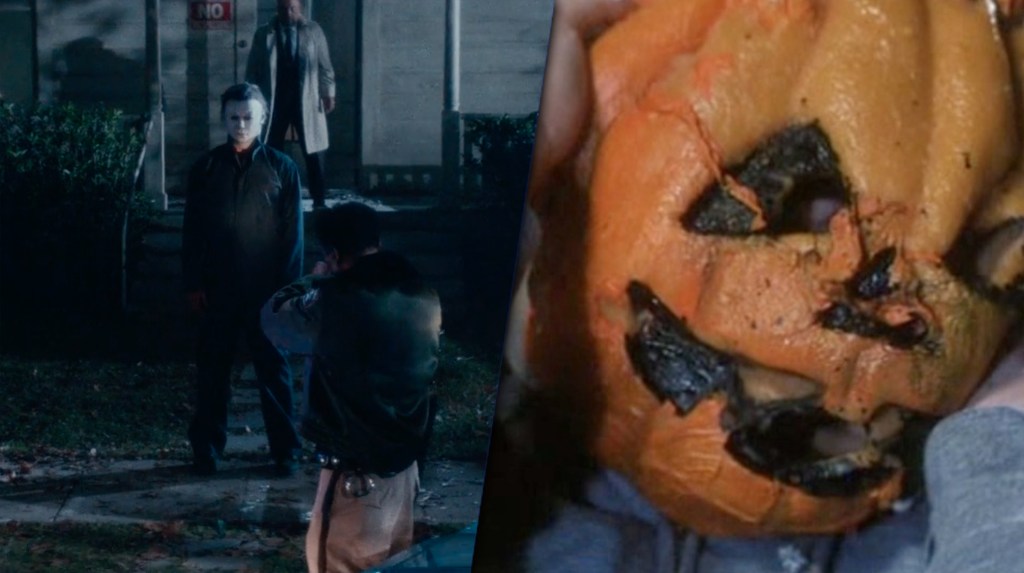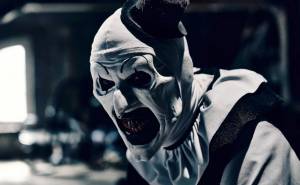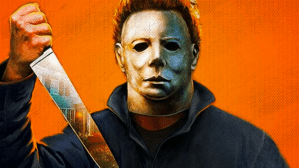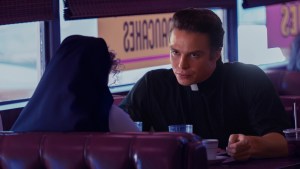For more than 40 years, Michael Myers has been an icon of terror, racking up dozens of kills across 13 entries into the Halloween franchise. He’s killed people with knives, hammers, axes, and telephone cords. In hopes of stopping him, heroes have shot, stabbed, and decapitated him, with his ultimate “death” in 2022’s Halloween Ends seeing him tossed into a trash compactor to have his entire body decimated. With Miramax having secured the rights to bring the Halloween franchise into the TV space, it’s clear that the property won’t be ending anytime soon, but the often-underwhelming reception of a majoriy of Halloween films proves that, for the franchise to ever find new life, it needs to leave Michael Myers behind for good.
Written by John Carpenter and Debra Hill, the original Halloween explored the idea that, while All Hallow’s Eve is meant to be a night of playful merriment, maybe that masked figure you ran into really had nefarious intentions. After seemingly meeting his match in Laurie Strode (Jamie Lee Curtis) and Dr. Loomis (Donald Pleasence), the masked Michael Myers suffered what would be fatal injuries for a normal man, only to escape into the night. The survivors of these attacks in Haddonfield, Illinois would never get answers for the brutality, with Myers first killing his sister on Halloween 15 years earlier and escaping a mental institution to once again cause chaos in his hometown.
Videos by ComicBook.com

The strength of the original Halloween is in its restraint and its subtlety; with slashers not yet becoming a major subgenre in the world of horror, Carpenter and Hill delivered audiences a creepy premise featuring authentically teen-aged characters that came to life with moody and ominous cinematography. The experience was heightened by Carpenter’s sparse and jarring musical score, which he crafted in order to save time and money, only to become a seminal composition.
The film was a resounding financial success, and while Carpenter and Hill never aimed to offer audiences anything other than a singular spooky story, it became quite clear that the studio was going to move forward with a follow-up, whether they liked it or not. Carpenter has often expressed that he and Hill agreed to write Halloween II in hopes of maintaining some creative input on the project, especially since they were able to kill off Michael in the finale. One of their more disastrous decisions, however, was revealing that Michael was motivated to kill based on his familial connection to Laurie, who audiences learned was his younger sister. This kicked off a long-running and convoluted mythology for the figure, earning only diminishing returns with each subsequent sequel.

Halloween isn’t the only franchise that released a long string of underwhelming follow-ups, but the real-world terror of the debut entry is what has made each sequel so frustrating. Movies like Friday the 13th, A Nightmare on Elm Street, and Hellraiser all had supernatural elements which, while unbelievable, could justify within these worlds how our monstrous villain could return from beyond the grave on a regular basis. Even if those films never had to spend copious amounts of exposition explaining the ins and outs of a killer’s mythology, there was a willingness on the audience’s part to suspend their disbelief. While the first two Halloween movies featured Myers earning horrific injuries, there’s a world in which someone could miraculously survive these wounds, especially how those first two movies unfold in under 48 hours. Without ever getting much explanation for his origins, other than he was “evil,” Michael somehow returned year after year and was rarely worse for wear. By the time the Halloween franchise started to attempt to explain the otherworldly abilities of Myers, it grew only more convoluted.
Back in 1982, the Halloween series attempted to move away from Myers with Halloween III: Season of the Witch, an experience that wasn’t nearly as dreadful as the previous two movies, yet had a direct connection to October 31st. Instead of a masked killer stalking teens in a suburb, Season of the Witch featured an evil mask-maker embedding the power of ancient runes into Halloween masks that would kill their young wearers, ultimately making the children a massive sacrifice to otherworldly entities. The absence of Myers was felt among audiences who were largely disappointed in the effort, especially given that the experience was a much campier and lighthearted affair. There’s still a lot to love about the adventure, which has earned a passionate cult following over the years. The producers of the franchise, though, immediately caved in to fan backlash and released Halloween 4: The Return of Michael Myers in 1988.

Largely due to mismanagement and never imagining anything beyond “make Michael Myers kill people,” the Halloween franchise has earned one of the most nonsensical and inconsistent timelines. Including Season of the Witch and Rob Zombie’s two reboot films, the Halloween franchise has earned five different timelines, some of which contradict or retcon one another, or even have to go out of their way to explain how the narratives negate the events of their predecessors. The reason for all of these changes, retcons, and reboots is due to filmmakers’ attempts to explain how Michael could persist, regardless of his horrific injuries.
Arguably the closest audiences have ever gotten to earning an explanation for Myers’ durability, regardless of how absurd it was, came in Halloween: The Curse of Michael Myers. The story revealed that Michael became the vessel for an ancient evil, imbued on him by the Thorn Cult, which explained his passion for killing and his physical prowess. Despite how this explanation could have justified a number of mysteries about the figure, test audiences for a “producer’s cut” didn’t appreciate the insight into the figure, resulting in significant reshoots to resemble previous installments in the slasher series, only to make for a more confounding experience.
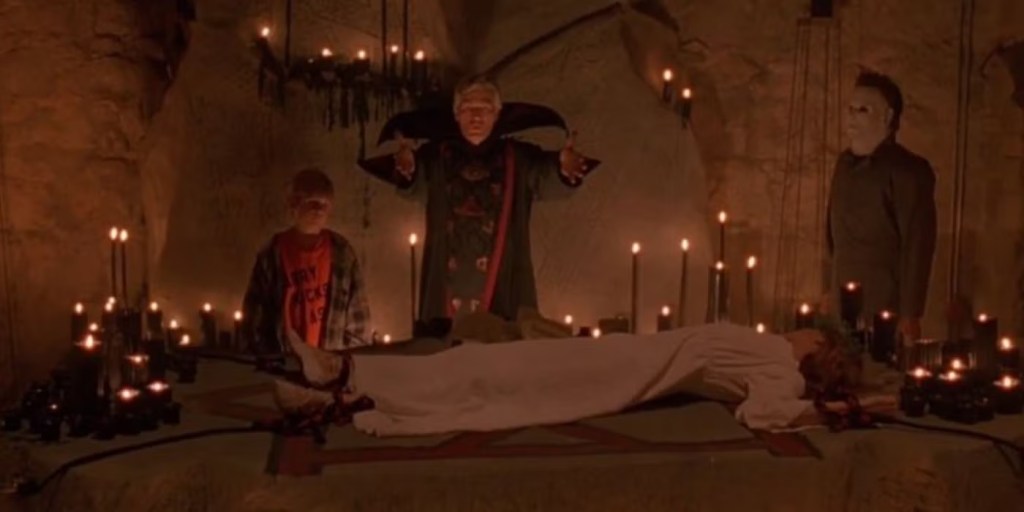
The biggest boosts in popularity the franchise has seen came in Halloween H20: 20 Years Later, Rob Zombie’s Halloween, and David Gordon Green’s Halloween trilogy. Halloween H20 and Green’s films both brought back Jamie Lee Curtis after extended breaks from the series, while Zombie’s film reimagined Michael’s origins. In this sense, fan enthusiasm was more about the elements outside of Myers’ traditional orbit and instead proved that even glimmers of breaking the mold would pay off. Each sequel to those more original outings, which would often just bring Michael back arbitrarily, would fail to impress audiences or critics.
Green’s films, though, mark a bit of an outlier, as the tremendous success of his 2018 movie saw his two sequels, Halloween Kills and Halloween Ends, outperform the rest of the franchise at the global box office, yet still marked dips in interest from fans. Green made the controversial decision with 2022’s Ends to imply that Michael’s treachery could somehow be passed on to a new individual, resulting in Rohan Campbell’s Corey Cunningham being primed to take over for the sinister sexagenarian. While there were glimpses of potential in this path, Green abandoned everything he was setting up in the first half of the movie just to deliver fans yet another showdown between Laurie and Michael in the final act. The sequel’s divisive response among audiences and critics was less about branching away from Michael and more centered on the messy ideas the filmmakers attempted to explore.
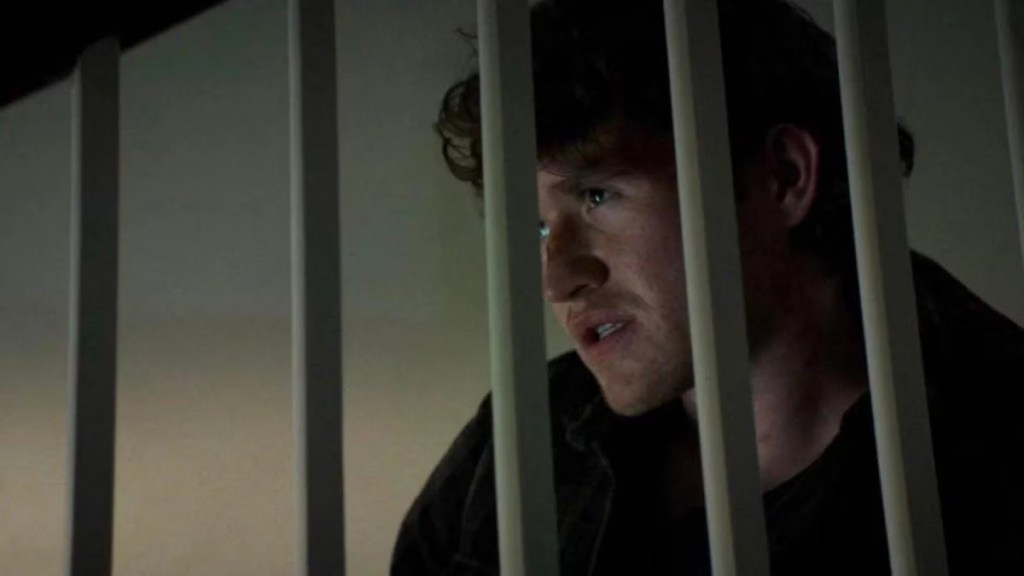
While Michael might be subjected to the Curse of Thorn in some narrative timelines, the Halloween franchise itself also suffers from the Curse of Michael Myers; films fail when they lean too heavily on repetitive tropes, though they also fail when deviating too far from audience expectations. Even if we don’t have an answer in regards to what the Halloween franchise should be, there are really only two paths: bring back Michael Myers or leave him behind completely. Of this fork in the road, we’ve already seen what happens when a studio opts to go the Michael route, which typically means a quick financial gain that shortly thereafter runs out of steam. At least if a new project attempts to take a riskier approach, any success could then be continued with nearly limitless possibilities, as opposed to having to start from scratch with another attempted reboot or retcon of predecessors.
There’s no question about Halloween III: Season of the Witch being an initial failure, though it has earned significant reassessments in recent years. Movies like Trick ‘r Treat and Scary Stories to Tell in the Dark have proven audience enthusiasm for experiences that tie directly into Halloween, so for a franchise to have trademarked the holiday itself, putting more attention on a killer who isn’t inherently linked to the annual event feels like a completely missed opportunity to expand its scope.

The next chapter in the Halloween saga being a TV series will help alter expectations. Shows like Hannibal, Scream: The TV Series, and the 2019 Are You Afraid of the Dark? helped showcase how projects could take beloved concepts, blend them all together, and pull out something that managed to honor the source material while not feeling beholden to expectations. In this sense, this is the perfect opportunity to touch upon all of the nostalgic elements that fans are expecting in a Halloween-related story while also expanding it into something more ambitious and experimental. Fans currently don’t know where the TV series will land or how many episodes can be expected, but even if it’s a limited series with six episodes, the run time alone will allow plenty of room to forge a new path, which is something the franchise desperately needs.
It’s hard to imagine a Halloween movie without Michael Myers, much like it would be hard to imagine a Friday the 13th movie without Jason Voorhees. In 1994, though, Wes Craven proved with New Nightmare that the right filmmaker could reinvent a figure as iconic as Freddy Krueger to put a fresh spin on a concept, opening doors for new storytelling avenues for A Nightmare on Elm Street. If the Halloween franchise makes a hard pivot away from Michael Myers, it runs the risk of earning a Halloween III-esque backlash that results in a complete reset back to a traditional stalking slasher, but the lengthy run time of an entire season of TV could finally allow the franchise to open up all-new narrative paths, as opposed to offering up recycled and redundant stories featuring Michael stalking, killing, and ultimately being defeated.
Do you think the Halloween franchise should move on from Michael Myers? Contact Patrick Cavanaugh directly on Twitter or on Instagram to talk all things Star Wars and horror!

